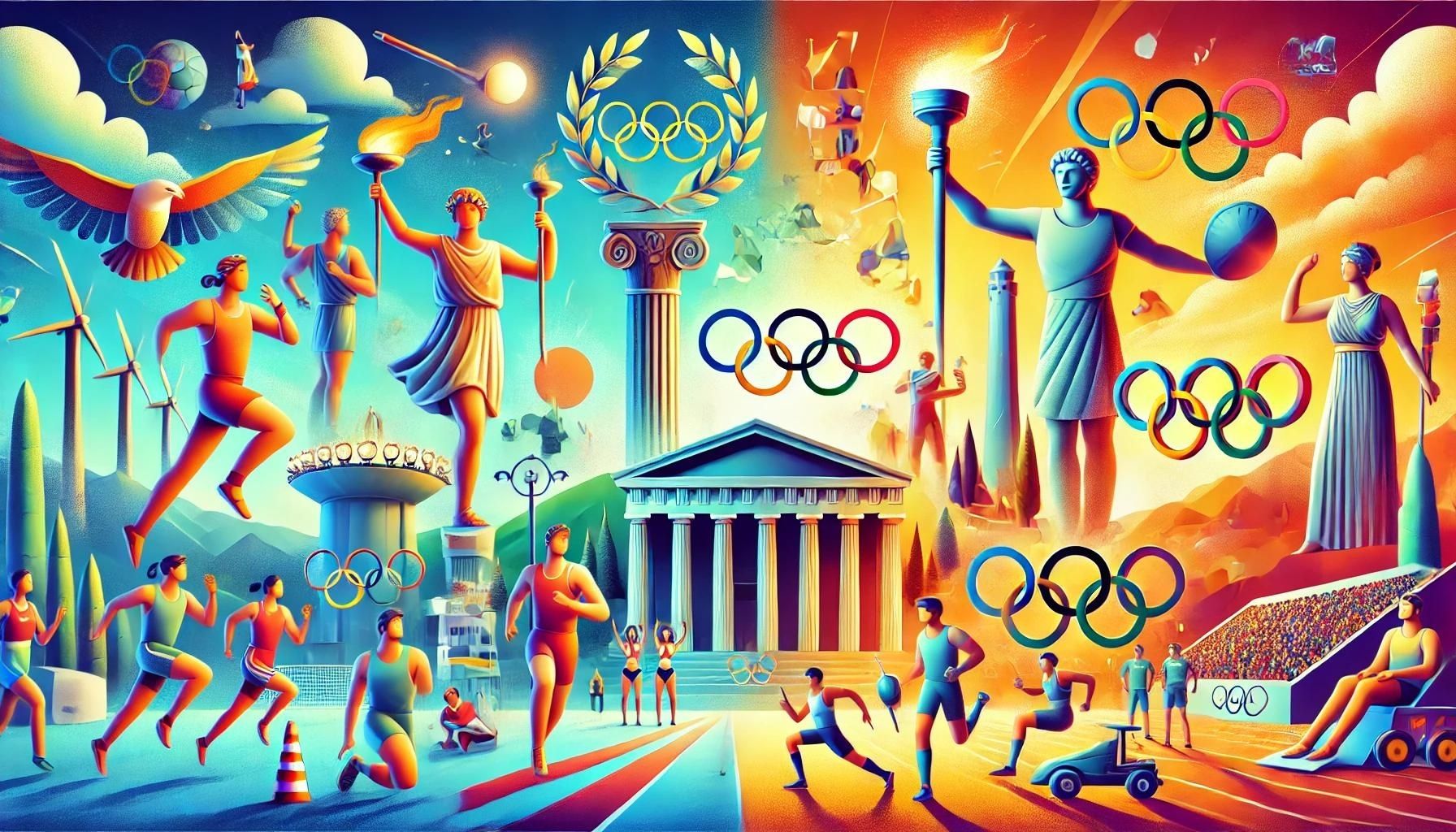The Olympic Games are a global celebration of athletic excellence, uniting nations and showcasing the pinnacle of human potential. From ancient traditions to modern marvels, the Olympics are steeped in fascinating history and unique trivia. Here are ten fun facts about the Olympics that you might not know:
1. Ancient Origins
The first recorded Olympic Games took place in 776 BC in Olympia, Greece. These ancient games were held in honor of Zeus and featured events such as running, long jump, shot put, javelin, boxing, and equestrian events.
2. The Olympic Flame
The tradition of the Olympic Flame dates back to the ancient Greek rituals where a fire was kept burning throughout the duration of the Games. In the modern Olympics, the flame is lit in Olympia and transported to the host city via a relay involving thousands of runners.
3. The Olympic Rings
The iconic Olympic rings were designed by Pierre de Coubertin, the founder of the modern Olympic Games, in 1913. The five interlocking rings represent the five inhabited continents of the world, and their colors (blue, yellow, black, green, and red) were chosen because at least one of these colors appears in every national flag.
4. First Modern Olympics
The first modern Olympic Games were held in Athens, Greece, in 1896. There were 13 countries participating with 280 athletes competing in 43 events. Since then, the Games have grown exponentially, with the most recent Tokyo 2020 Olympics featuring over 11,000 athletes from 206 nations.
5. Women in the Olympics
Women were first allowed to compete in the Olympic Games in 1900 in Paris. Only 22 women participated, competing in five sports: tennis, sailing, croquet, equestrian, and golf. Today, nearly half of the athletes in the Olympics are women.
6. Olympic Mascots
The first official Olympic mascot was Waldi, a dachshund dog, introduced at the 1972 Munich Olympics. Since then, each Olympic Games has had its own unique mascot, often reflecting the culture and heritage of the host country.
7. Winter Olympics
The first Winter Olympics were held in Chamonix, France, in 1924. Initially, winter sports were included in the Summer Olympics until they gained enough popularity to merit their own separate event. Today, the Winter Olympics feature sports like skiing, ice hockey, and bobsledding.
8. The Oldest Olympian
The oldest Olympian to compete was Swedish shooter Oscar Swahn, who participated in the 1920 Antwerp Olympics at the age of 72. He won a silver medal in team shooting, making him the oldest medalist in Olympic history.
9. Youngest Olympian
The youngest known Olympian is Dimitrios Loundras from Greece, who competed in gymnastics at the first modern Olympics in 1896 at the age of 10. He remains the youngest medalist, winning a bronze in team gymnastics.
10. Most Medals
The record for the most Olympic medals won by an individual athlete belongs to American swimmer Michael Phelps, who has a staggering total of 28 medals, including 23 golds. His achievements span from the Athens 2004 to the Rio 2016 Games.
—
The Olympics are more than just a series of sporting events; they are a testament to the spirit of human achievement, unity, and perseverance. From their ancient origins to their modern-day grandeur, the Olympic Games continue to inspire and captivate audiences around the world. These fun facts offer a glimpse into the rich history and remarkable moments that make the Olympics a truly unique global phenomenon.






